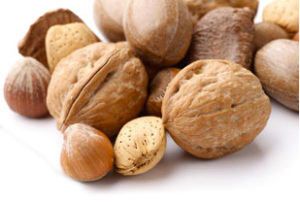![]() Two interesting studies about vitamins during pregnancy and possible effects on the child. One found that low levels of vitamin D3 is linked to behavioral issues and ADHD symptoms in preschool aged children, while the other raises the possibility of very high levels of folic acid during pregnancy linked to autism in the child. More studies are needed.
Two interesting studies about vitamins during pregnancy and possible effects on the child. One found that low levels of vitamin D3 is linked to behavioral issues and ADHD symptoms in preschool aged children, while the other raises the possibility of very high levels of folic acid during pregnancy linked to autism in the child. More studies are needed.
From Medscape: Maternal Vitamin D Deficiency and Behavioral Issues in Offspring
Maternal vitamin D deficiency in early pregnancy is associated with an increased risk of behavioral issues and attention-deficit/hyperactivity disorder (ADHD)–like symptoms in preschool children, according to new data from a birth cohort study in Greece. But no association was found between maternal vitamin D deficiency and cognitive scores in the children at age 4, reported Vasiliki Daraki, MD, an endocrinologist from the University of Crete, Heraklion, Greece, who led the analysis, which was a poster presented at the European Congress of Endocrinology 2016.
The analysis showed that maternal vitamin D levels lower than 50 nmol/L during the first trimester of pregnancy were associated with increased behavioral problems and ADHD-like symptoms among the offspring...."The lower the mother's vitamin D levels, the higher the child's hyperactivity and inattention," reported Dr Daraki.
"I think the role of vitamin D in the developing brain is in neuronal differentiation and axon development, and these are more important for behavioral problems than for cognition," Dr Daraki added.....In the future, she and her colleagues intend to measure the cognitive function and behavioral status at the age of 7 years and determine whether the results still hold at the later age.
From Medical Xpress: A study asks: Too much folic acid a cause of autism?
For decades, pregnant women and women who may become pregnant have been advised to take folic acid to help prevent certain birth defects. But a new study suggests it may be possible to get too much of a good thing—very high levels of the vitamin in mothers' blood at the time of childbirth was linked to higher risk of their children developing autism years later. (Other research points to an opposite relationship between folic acid and autism, showing that adequate amounts of the vitamin at the time of conception can significantly reduce the risk.)
Folate is a vitamin found in foods that is important in cell growth and development of the nervous system. A synthetic version, folic acid, is used in supplements and is used to fortify flour and cereals. Decades ago, researchers found certain levels of folic acid could prevent major birth defects of the baby's brain and spine. In the early 1990s, U.S. health officials began recommending that all women who might become pregnant should take 400 micrograms of folic acid daily. And in the late 1990s, federal regulations began mandating that folic acid be added to flour, bread and other grain products.
The new researchers followed 1,391 children who were born at Boston University Medical Center in 1998 through 2013. About 100 of them were later diagnosed with an autism spectrum disorder. The researchers went back and looked at levels of folate and vitamin B12 in the blood of the children's mothers at the time of childbirth. They found that 16 of them had very high levels of folate, and 15 had extremely high levels of vitamin B12. If both levels are extremely high, there is more than a 17-fold greater risk that a child will develop autism, the researchers said.
Most of the moms in the study said they took multivitamins—which would include folic acid and vitamin B12—throughout their pregnancy. But the researchers say they don't know why some women had such high levels in their blood. It may be related to taking too many supplements and eating too many fortified foods. Or there could be a genetic reason that caused some women to absorb more folate than others. Or there could be a combination, they said.

 To celebrate National Nut Day, two articles about health benefits of nuts. From Medical Daily:
To celebrate National Nut Day, two articles about health benefits of nuts. From Medical Daily: